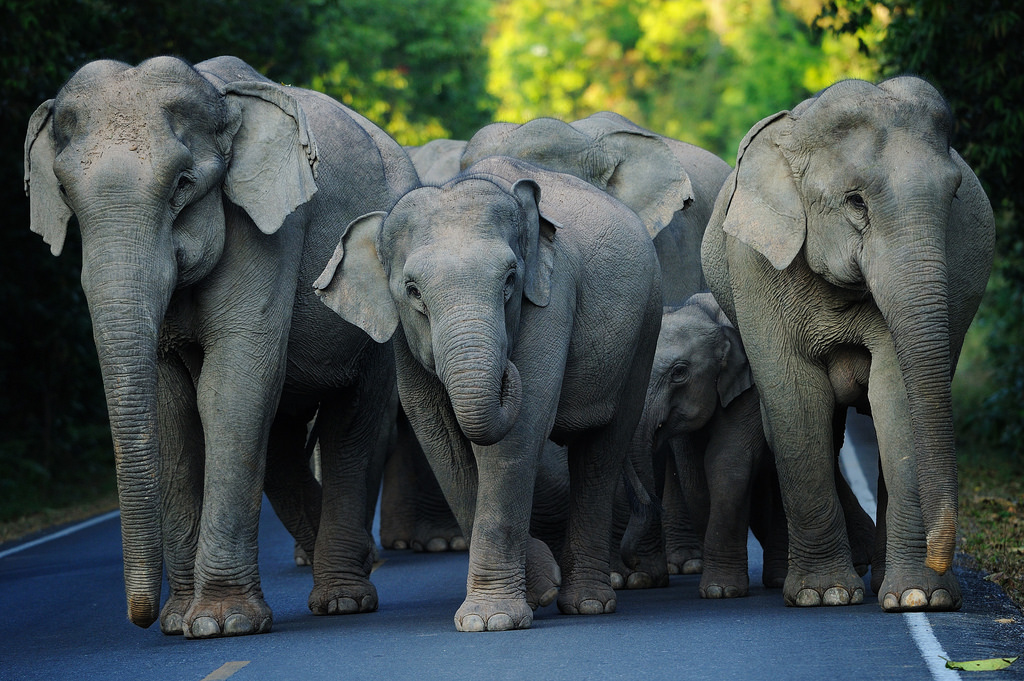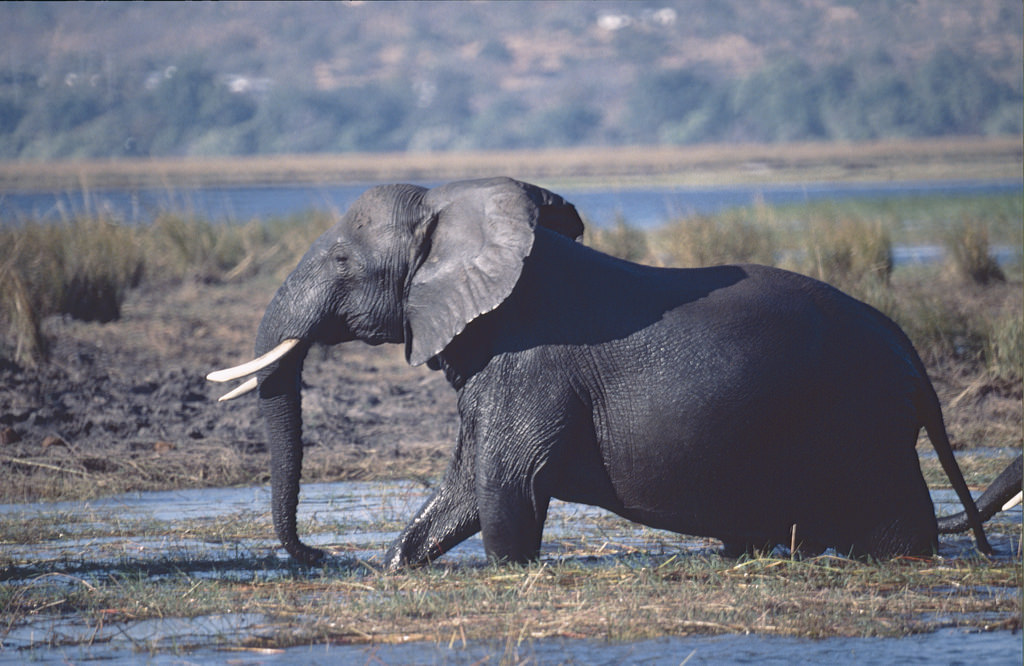Elephants have been an integral part of history and cultures worldwide for centuries. They have been everything from circus entertainers to zoo occupants, from formidable instruments of war and labor to to prized sources of ivory. Only in recent decades, however, has the suffering and plight of elephants been brought to the forefront, along with the necessity to return them to their natural habit.

The inhumane treatment of these animals, including the use of bullhooks, whippings, and electric shocks, along with other cruelties described by such organizations as PETA and PAWS, has led Ringling Brothers and other circuses to eliminate elephant acts from their shows. Elephant rides for tourists involve similar cruelties, although many travelers remain unaware of this horrific treatment. As Ethical Traveler explains, “This cruelty is summed up by four “C’s”—capture, crush, coercion and confinement.” Thus, because of the brutality involved in capturing and training elephants, “Ethical Traveler joins the ranks of like-minded travel organizations like Intrepid Travel and Responsible Travel in affirming that we do not support elephant rides as a tourist activity.”
Documentaries such as Return to the Forest, Gods in Shackles, An Apology to Elephants, and When Elephants Were Young, as well as some online videos, have heightened awareness of this savage treatment through such images as elephants being whipped into submission, shackled together like a chain gang, bleeding from mistreatment, and strapped to the ground.
A Day For the Elephants
World Elephant Day, celebrated annually on August 12, is a prime example of the fight to highlight the urgent plight of these animals. Striving for better protection and policies, its mission is to spread awareness, share knowledge, and provide solutions for better care and management of both captive and wild elephants.
Conceived in 2011 by Canadian filmmakers Patricia Sims and Michael Clark, and Sivaporn Dardarananda, Secretary-General of the Elephant Reintroduction Foundation in Thailand, World Elephant Day was officially launched in 2012. In the ensuing years, says Sims, the campaign “has become a global voice speaking out on behalf of elephants” and is now supported by over 65 wildlife organizations, as well as many individuals in countries around the globe. Celebrities who have spoken out about the vital need for elephant protection include Leonardo DiCaprio, William Shatner, Prince William, Alec Baldwin, Stephen Fry, Ashley Judd, Barack Obama, and Hillary and Chelsea Clinton.

The result, notes Sims, is “a growing global awareness about the serious plight facing elephants. People around the world love elephants, and we’ve seen by the diverse reach and impact that World Elephant Day has that no one wants to see the extinction of these magnificent, intelligent creatures from Earth.”
The 2016 World Elephant Day focuses on Asian elephants, which are facing extinction due to exploitation in the tourism industry and loss of habitat, and the International Union for Conservation of Nature (IUCN) lists them as “endangered.” According to the educational website Bagheera, aimed at saving endangered species, there were an estimated 200,000 Asian elephants at the turn of the century – today, probably no more than 35,000 to 40,000 remain in the wild.
As the world’s most densely populated continent, Asia has already lost a huge percentage of elephants due to increased population, large infrastructure such as dams, roads, and mines, as well as expanding human settlements. These all fragment elephant habitats and cut off ancient migratory routes.
“This year we wanted to draw attention to the role that Asian elephants play in tourism specifically,” says Sims, “whether it be in the West, or in countries such as Thailand. There are many problems that Asian elephants face in the tourism industry, where they are often not cared for properly, and are often overworked.
“We want to bring attention to these problems so that people can be more aware and make educated, ethical choices on the best places to travel to encounter elephants.”
A World-wide Event
Events of various kinds will be held around the world to celebrate World Elephant Day, hosted by zoos, universities, communities, museums, restaurants, and many other organizations. One of this year’s initiatives is the 96 Elephants Origami Challenge which is attempting to break the Guinness World Records™ title for the largest display of origami elephants. 96 Elephants, in partnership with Origami USA, aims to fold 35,000 origami elephants – the number of African elephants killed each year purely for their tusks.
Last year, The Nature Conservancy hosted a similarly imaginative project called the #Elegram Project, with the goal of making or drawing 20,000 elephants to raise funds—a number (which has since been exceeded) based on the number of elephants that would “start their life’s journey” in 2015—“at a time when it’s never been tougher to be an elephant.”
Sims says another choice to focus on Asian rather than African elephants is that for over 4,000 years, Asian elephants have participated in a symbiotic codependent relationship with humans that is unique to that part of the world – a relationship that is the central focus of Clark and Sims’ new award-winning documentary When Elephants Were Young. Released on World Elephant Day and narrated by William Shatner, the film details the life of Bangkok elephant Nong Mai and her mahout (caretaker and trainer), a young man named Wok. Nong Mai and Wok attempt to forge a living by illegally begging on the streets of Bangkok, facing indifference if not outright hostility at every turn.
“Elephants have been accorded a high degree of reverence in [Asian] cultures,” Sims told World Elephant Day’s Anne DIllon. “For most people in Western countries, the first elephant they see, typically in a zoo, is usually an Asian elephant, not an African elephant.”
Raising Awareness
Raising awareness is one of the hardest challenges facing elephant advocates.
“Probably the most difficult and challenging aspect [has been] that people don’t want to believe it,” Sims explains. ”In some ways it seems impossible for people to imagine—because elephants are so big and powerful—that elephants are also very sensitive and vulnerable.
“People see elephants perform, whether it be in a circus or in a tourist camp, and are in awe of their abilities and intelligence. They can’t imagine how they could be forced to do such feats. When I consider some of the captive circumstances I have witnessed, it surprises me what elephants put up with from humans.”
But changes have indeed been on the rise, from the elimination of elephant acts in circuses to the growing trend in eco-tourism as travelers are increasingly aware of their potential impact on ecology, animal rights, and other issues. As Sims points out, “The public, when unified, has a powerful voice and can change the circumstances for elephants in these captive environments, and in the tourism industry.” Additionally, inroads have been made to reduce the lucrative ivory trade. “We’ve seen major ivory stockpiles burned or crushed in over ten countries as a statement against the slaughter of elephants for their ivory,” notes Sims.
World Elephant Day, as euronews notes, “should make us all think about the reality facing many elephants today, amid an ivory trade that animal rights groups say has fuelled a surge in poaching. In summary, it’s a ‘relephant’ day.”
Read Ethical Traveler's Reprint Policy.
